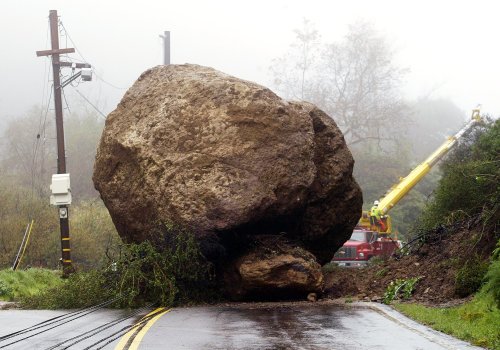How Writers Can Adopt a Success Mind-Set
Many writers I work with have completed a first draft of a manuscript. But they have never taken the next steps to get it edited, published, and marketed. They are standing in their own way.
You may or may not know what your roadblocks are. Maybe you don’t want to know. Yep, they’re ugly, massive, intimidating, even mean. But I’ll tell you a secret: they’re really made of tissue paper. If you have the proper sword—the success mind-set—you can slice through those obstacles no problem.
What’s the success mind-set? Glad you asked.
A success mind-set is all about believing positive possibilities for yourself. This is not blind optimism and does not mean you should believe that you can do everything. It involves having a reasonable attitude about yourself and your abilities. It’s about being nice to yourself and using positive self-talk.
There’s a fine balance that successful people develop between pushing themselves to achieve and accepting their limitations. It takes experience and discernment to determine how to set high but attainable expectations of yourself.
If you’re too hard on yourself, you will suffer a lot of discouragement, and that will build a roadblock. But if you aren’t hard enough—if you let yourself off the hook by indulging in laziness, excuses, and self-pity—then you will plop down in the middle of the road, staring at the obstacle, and get nowhere.
I like to think of myself as the little steam engine that could. I think I can, I think I can. I don’t know what I can accomplish until I set off down the track. I don’t know how high up a hill I can push myself until I get there and start pushing. If I slide back, I reassess.
That’s one reason having a flexible strategic plan is so important. You set milestones, then tweak them so that they’re reachable. If you set unreasonable goals and expectations for yourself, you create roadblocks instead of crushing them.
When obstacles rear up to thwart your progress in your writing career—whether they are external, like unexpected life interferences, or internal, like self-sabotaging thoughts, you need to acknowledge them, understand where they’re coming from, and how you can hack through them (remember, they’re really only tissue paper).
There are many kinds of roadblocks we put in our paths, but most of them are due to fear. A lot of them center on the fact that writing is hard work, and it takes herculean effort for some of us to get in the right mood or frame of mind to put in some good hard writing. Writing isn’t always fun and easy. Neither is marketing and promoting and social networking.
This is where we delineate between writing for fun, as a hobby, and working our writing into a professional career or producing a professional high-quality product.
To get from the former to the latter, we have to ramp up the effort. We have to make a decision to switch gears from writing for fun when we feel inspired or when we have nothing else pressing to do to treating our writing and publishing as a priority and career. It’s a mind-set shift. That mind-set of success.
Blast through Procrastination
Procrastination is often the result of fear. How many times have we tried to get out of our comfort zone—challenge ourselves via our writing—only to back off? In the video on fear, I discuss practical ways to face and conquer fears.
If you know you procrastinate, try to determine why. I hate to be blunt, but some writers I know are just lazy. They complain to me that they just don’t want to do the writing. It’s hard!
I once heard a line that stuck with me: “People want to be authors, but they don’t want to be writers.” Many people like the glamor of the image of themselves as authors, but they don’t want to do the requisite work to reach that pinnacle of acclaim. Don’t I know it?
When I get ready to dig in to write a new novel, I take a big breath and steel myself—like I’m about to snowboard down a killer hill. Or more like run a marathon. I know the time commitment, and, even more, the amount of intense concentration I’ll have to devote to seeing the project to the end. Concentration that will seep into every waking moment and even my dreams.
It’s all-consuming.
It has to be worth that kind of emotional and mental investment to you to stay the course. And you have to believe in your story. If you are bored with your ideas, how in the world will you muster up the enthusiasm to get to “the end”? You won’t.
I ask these lazy friends how much they really want to see their book published. They do, but they just don’t push themselves hard enough to reach that goal. Some of these writers have taken courses and have read dozens of books on the craft and attend conferences and writing summits regularly.
Habits and attitudes are hard to change. If your procrastination is due to laziness, you’ll need to do some serious self-talk and evaluation to reach those goals.
We all know about successful authors who worked one or two jobs, while raising kids, and eking out time to write. People like Toni Morrison. People like Sean Costello, who said: “I’ve been a full-time anesthesiologist since 1981 – and scrambling for time to write ever since … evenings, weekends, holidays.”
Each day we wake up with great intentions, setting aside time, knowing what we want to write, but then we start making excuses and get distracted. Distractions are things we grab on to in order to avoid the hard work.
For me, often, it’s just that I don’t want to do the work. The scene is daunting. I’m struggling with my descriptions. The writing is bland and uninspiring.
So what do I do? I start cleaning the house. I fold laundry. I drift onto the internet and, before I know it, I’m watching cute videos of baby pandas.
Admit it. You do this too. I’ve talked to some of my author friends who are hugely successful and they swear they do everything they can to not write. They love to write, but sticking their body in a chair each day takes effort. It’s worth the fight, to them, to break through the roadblocks.
The list of excuses is endless, and procrastination is to blame.
Sometimes we’re afraid to put our words onto the page. We’re going to do anything and everything in our power to not sit and write, because we think it’s going to suck. We think it’s going to be impossible to make the chapter brilliant. And if it’s not brilliant, that’s just one more reminder that we’re fooling ourselves.
How do we get past procrastination?
Find that balance between reasonable and ridiculous expectations. Remind yourself that practice makes better. That some days your writing will be brilliant and other days it will suck. That writing is a process that fluctuates, and if you just stay the course with discipline, a regular schedule, and professionalism, you’ll see that success you long for.
Want some simple first steps to help you with all that?
- How about prioritizing your to-do list? Clear off the small, quick and easy things first thing in the morning. I can’t start working on anything until I go through my in-box and reply to the important emails. That done, I schedule for later what I don’t need to deal with now. Once I do that, I can shelve the list and it won’t nag at the back of my mind.
- Try setting a timer for your writing session. Let no one and nothing interfere. Push through till the alarm rings. Start with just fifteen minutes. No cheating. No sneaking off to surf the net. If you need to set a reward for yourself at the end (that brownie on the counter?), do so. Whatever it takes to develop the daily discipline to write.
This applies to the time you’ve set aside to do marketing and promotion. Some things we just hate to do but they have to be done. Suck it up and do them. Remind yourself you are a professional and this is your career. I’ll say this again: think of all the regrets you’ll have at the end of your life if you don’t pursue your dream. This is your one life, now and here. Live it to the full.
Every writer is different and brings with him into his writing life a unique set of roadblocks. Only you can determine what those are, the ways that might work to crash through them or hack around them, and the lifelong adjustments you may need to write and publish the book of your dreams.
Featured Photo by Kiana Bosman on Unsplash












Hi C, I’m glad I stumbled across your blog on writing because I realize I’m not the only person to procrastinate sitting down and writing. You brought up a good point about asking why we procrastinate because now I am asking myself why I do it. Hopefully it will help me stop doing it once I find the reason! I think all writers struggle with a roadblock but in order to be successful you have to find a way to overcome that. I like the positivity of your blog, it comes down to believing in yourself and writing because you enjoy it.
OUCH. You hit all the spots!! Thank you, though!